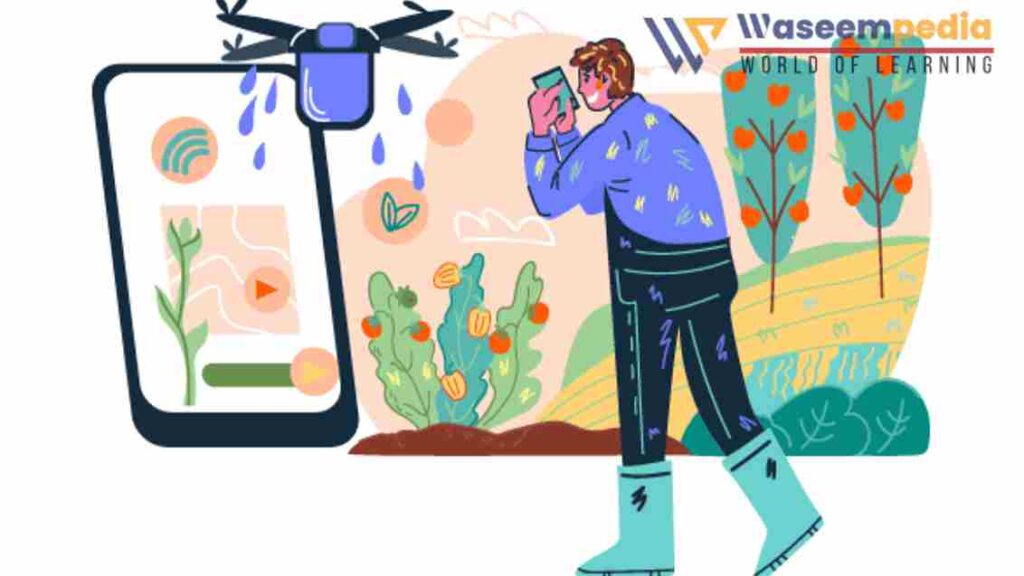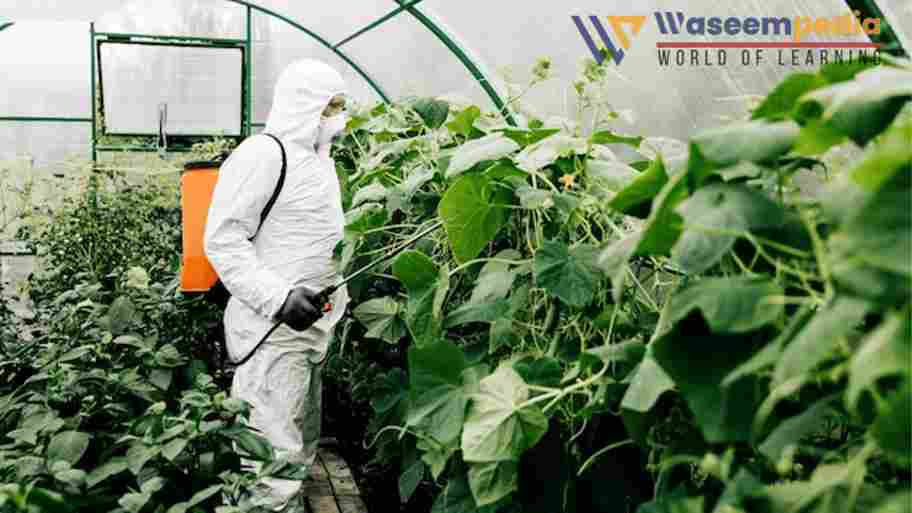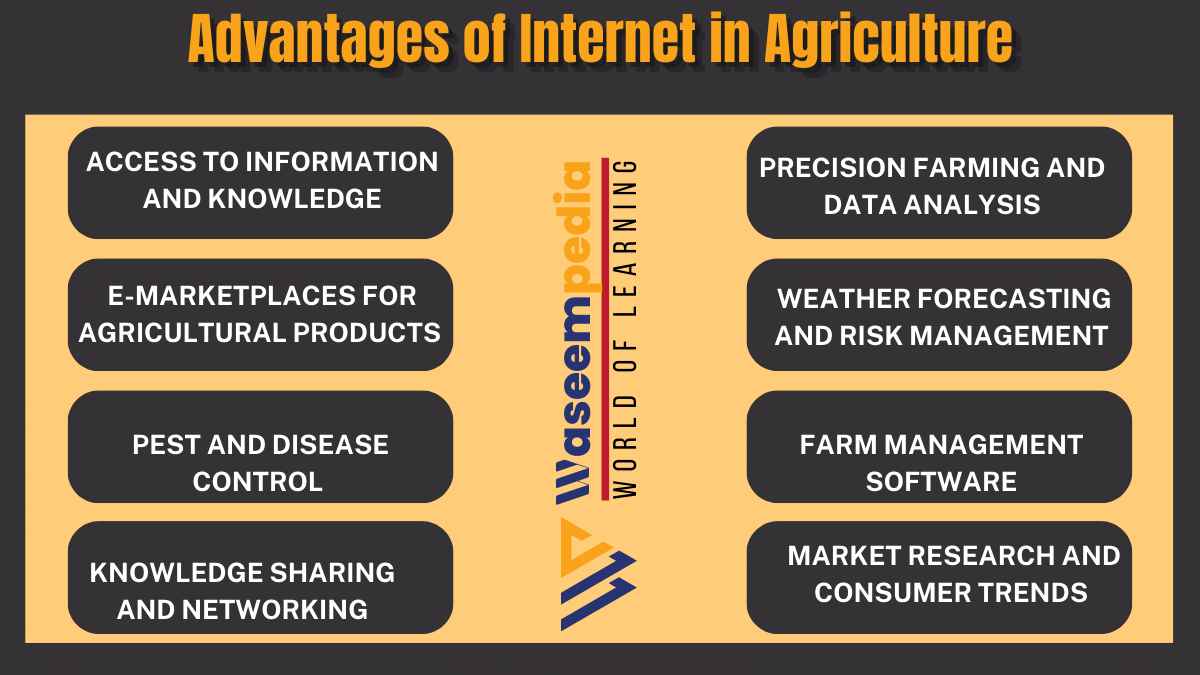Internet has revolutionized various industries, and agriculture is no exception. With the digital age upon us, farmers and agriculturalists are leveraging the power of the internet to transform the way they cultivate, manage, and market their products. In this article, we’ll read the numerous advantages of Internet in Agriculture that brings to the field of agriculture, making farming more efficient, sustainable, and profitable.

The advantages of the internet in agriculture are undeniable. From fostering knowledge sharing to enabling precision farming and expanding market reach, the internet has transformed the way farming is done. As technology continues to evolve, the integration of digital tools in agriculture will undoubtedly lead to a more sustainable, efficient, and interconnected farming ecosystem.
10 Advantages of Internet in Agriculture
10 Advantages of Internet in Agriculture are given below.
1. Access to Information and Knowledge
The internet serves as an extensive knowledge repository for farmers, providing them with valuable information on crop cultivation, pest control, soil management, and best practices. Online forums, agricultural websites, and research papers enable farmers to stay updated with the latest techniques and advancements, leading to improved productivity and reduced reliance on traditional methods.
2. Precision Farming and Data Analysis
Precision farming is a technique that utilizes data-driven insights to optimize crop yields. With the internet’s connectivity, farmers can employ sensors, drones, and GPS technology to monitor and manage their fields in real time. This data-driven approach helps in making informed decisions about irrigation, fertilization, and planting, leading to resource efficiency and higher crop quality.
3. E-Marketplaces for Agricultural Products
The internet has facilitated direct interaction between farmers and consumers through online marketplaces. Farmers can now showcase their produce to a global audience, eliminating the need for intermediaries and ensuring fair prices for their products. Consumers, in turn, gain access to a wider variety of fresh produce, promoting healthier eating habits.

4. Weather Forecasting and Risk Management
Accurate weather forecasting is vital for agriculture. The internet provides access to real-time weather updates, enabling farmers to prepare for extreme weather conditions and adapt their farming strategies accordingly. This proactive approach minimizes losses due to unexpected weather events and contributes to better risk management.
5. Pest and Disease Control
Timely detection and control of pests and diseases are critical for crop protection. Online platforms offer information about various pests and diseases, along with effective control measures. Farmers can diagnose issues and access remedies quickly, preventing the spread of diseases and minimizing crop loss.

6. Farm Management Software
Farm management software has streamlined agricultural operations. These digital tools help in tracking inventory, managing finances, and monitoring equipment maintenance. The internet enables farmers to access these applications from anywhere, enhancing overall farm efficiency.
7. Knowledge Sharing and Networking
Online agricultural communities and social media groups enable farmers to connect, share experiences, and seek advice from peers worldwide. This networking fosters collaborative learning and encourages the exchange of innovative ideas that can transform traditional farming practices.
8. Access to Agricultural Courses and Training
The internet offers a plethora of online courses and training programs related to agriculture. Farmers can expand their skill set and stay updated with industry trends without the need to travel. This continuous learning contributes to the professional development of farmers and promotes sustainable farming practices.

9. Sustainable Agriculture
Internet-enabled technologies promote sustainable agricultural practices by minimizing resource wastage. Drip irrigation systems, smart fertilization, and crop rotation strategies optimize resource utilization, reduce environmental impact, and ensure long-term agricultural viability.
10. Market Research and Consumer Trends
The internet provides valuable insights into consumer preferences and market trends. Farmers can align their production with current demands, enhancing market competitiveness and profitability.
FAQs (Frequently Asked Questions)
How does the internet help farmers with pest control?
The internet offers information on various pests, diseases, and effective control measures, allowing farmers to diagnose and manage issues promptly.
Can internet-enabled farm management software be accessed remotely?
Yes, farm management software can be accessed from anywhere with an internet connection, enhancing convenience and efficiency.
How does precision farming contribute to resource efficiency?
Precision farming utilizes data to optimize resource utilization, reducing waste and promoting sustainable agricultural practices.
What role does the internet play in sustainable agriculture?
The internet facilitates access to knowledge and technologies that promote resource-efficient farming practices, minimizing environmental impact.
How can farmers benefit from online agricultural courses?
Online courses offer farmers the opportunity to expand their skills, stay updated with industry trends, and adopt innovative farming techniques.

